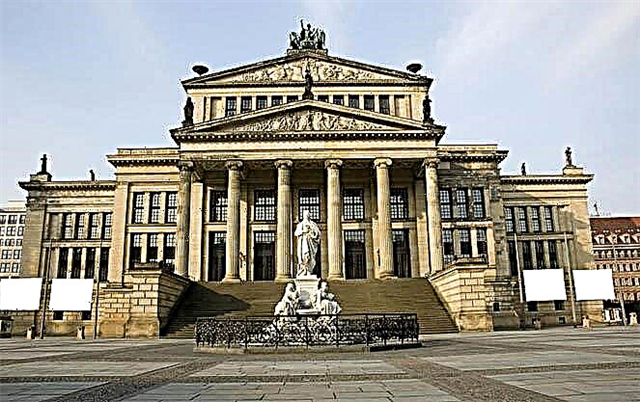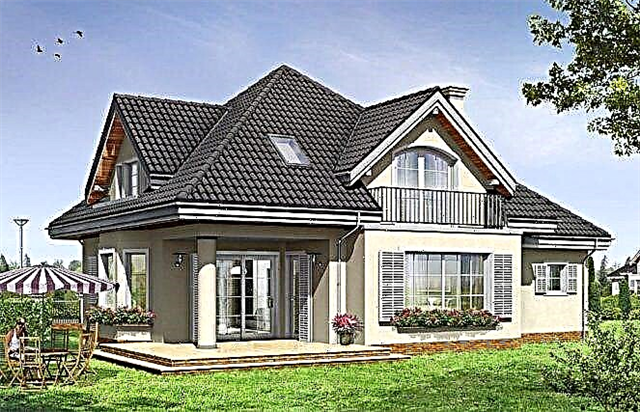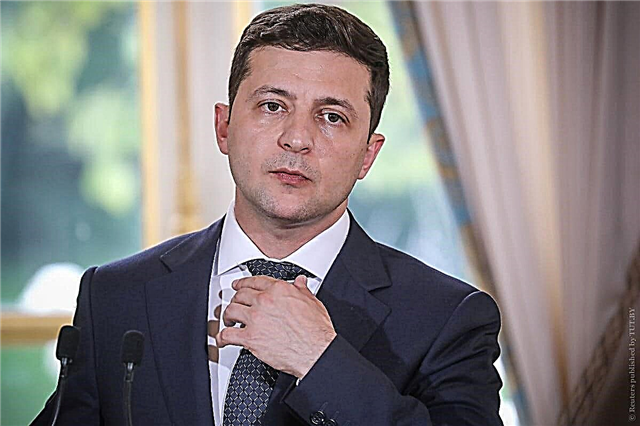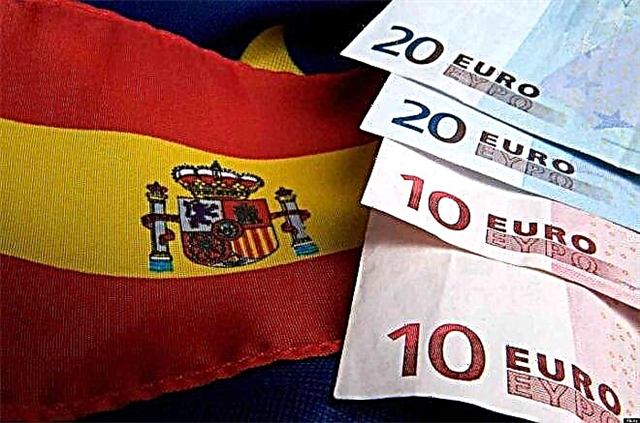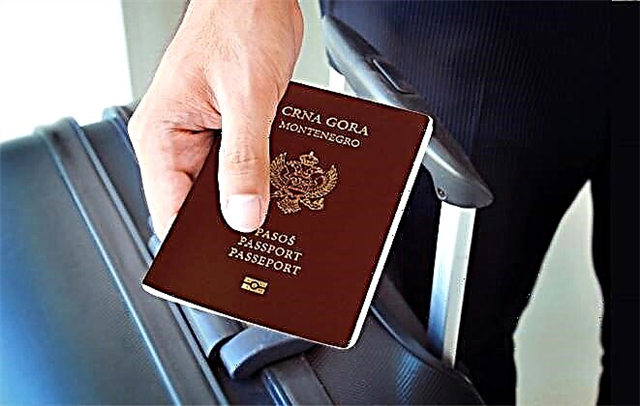Montenegro is a young Balkan state aspiring to the EU. Tiny size, tourist attraction and low cost of living increase the rate of immigration to the country and the receipt of Montenegrin passports by foreigners. Montenegrin citizenship in 2021 can be obtained in many ways, including by making large investments.

Advantages of Montenegrin citizenship
Montenegro is not an EU country, and the prospects for its admission to the union are not entirely clear. The country has been officially recognized as a candidate for membership, here the euro has been unilaterally introduced as the national currency, however, the complex of reforms that need to be carried out for official admission to the union has been completed only by 9-10%, so adoption should not be expected in the near future.
Despite this, the country has a lot to offer migrants. Let's take a quick look at what Montenegrin citizenship gives:
- visa-free travel to most Schengen countries with a biometric passport;
- residence in Montenegro without any time limit;
- the right to receive education, assistance within the framework of the national health system;
- participation in the election campaign;
- the right to obtain Montenegrin citizenship by relatives and family members;
- life in a country with excellent ecology and high tourist attractiveness - tourism is one of the leading sectors of the Montenegrin economy.
In Montenegro, the cost of living in general is low: housing, food, household items. And the attractiveness of the country for entrepreneurs is increased by the low cost of labor.
General grounds for obtaining citizenship
 General conditions for obtaining Montenegrin citizenship for Russians and other foreign citizens are determined by Art. 8 of the Law “On Citizenship of Montenegro” - Zakon o crnogorskom državljanstvu (hereinafter - the Law). According to it, citizenship is acquired by a person who has submitted a relevant request to the migration authorities and:
General conditions for obtaining Montenegrin citizenship for Russians and other foreign citizens are determined by Art. 8 of the Law “On Citizenship of Montenegro” - Zakon o crnogorskom državljanstvu (hereinafter - the Law). According to it, citizenship is acquired by a person who has submitted a relevant request to the migration authorities and:
- has reached the age of majority;
- freed from their past citizenship (except for stateless persons and persons who were denied withdrawal from their past citizenship);
- has been legally residing in the country for at least 10 years;
- has housing and a permanent, legal and sufficient source of income;
- has not been convicted of crimes involving imprisonment for more than 1 year (when a criminal case is initiated, the consideration of the application for citizenship is terminated until the end of the proceedings);
- speaks Montenegrin for communication at a household level;
- does not pose a threat to the security of Montenegro;
- has no outstanding tax or other debt.
Methods for acquiring Montenegrin citizenship
In addition to the general conditions for the acquisition of an indigenous person, there are also special grounds for obtaining citizenship in Montenegro. According to the Law and other special government decisions, there are such programs for emigration and citizenship:
- birth in the Montenegrin territory or Montenegrin origin;
- marriage with a citizen of the country;
- family reunion;
- the interest of the state in the adoption of citizenship of a particular person;
- economic citizenship of Montenegro for investors;
- acquisition of a special humanitarian status in the state;
- the presence of an indigenous child's parents.
Let's consider the main ways of acquiring a Montenegrin passport in more detail.
Birth in Montenegro and nationality
According to Art. 5 of the Law, Montenegrin origin is one of the main grounds for acquiring citizenship. All children have this right:
- whose parents were Montenegrins at the time of their birth;
- born in Montenegro, if one of their parents is a citizen of the country;
- if one of the parents has citizenship, and the other is stateless or his citizenship is unknown, regardless of the place of birth;
- born outside the republic, if one of the parents is Montenegrin and otherwise the child will remain stateless.
In addition, the right to Montenegrin citizenship arises in children by birth / permanent residence. So, according to Art. 15 of the Law, a person born in Montenegro or living in it until the age of majority, regardless of the place of birth, can obtain a Montenegrin passport if:
- does not have any other citizenship;
- lived in the country for at least 10 years;
- has no criminal record;
- does not pose a threat to the security of the country;
- has no tax or other debts.
These persons acquire citizenship according to the rules of admission, that is, in the order of naturalization with the indicated concessions.
Marriage to a citizen
 Marriage with a citizen of the country is the basis for the application of preferential conditions for acquiring citizenship. How to become a citizen of Montenegro by marriage is determined by Art. 11 of the Law. Benefits are granted to a foreigner who is in a marriage union with a Montenegrin, if the marriage lasts at least three years and the foreigner has legally resided in the country for at least five years.
Marriage with a citizen of the country is the basis for the application of preferential conditions for acquiring citizenship. How to become a citizen of Montenegro by marriage is determined by Art. 11 of the Law. Benefits are granted to a foreigner who is in a marriage union with a Montenegrin, if the marriage lasts at least three years and the foreigner has legally resided in the country for at least five years.
Additional conditions:
- having a legal, permanent and sufficient source of income (or spousal support) and suitable housing;
- no conviction for crimes involving imprisonment for more than 1 year;
- no threat to the country's security.
Conditions for exemption from past citizenship, long-term 10-year residence, knowledge of the Montenegrin language and others are not applied. Moreover, it is possible to obtain a passport on the basis of marriage, even if the Montenegrin spouse has died, but before his death the married couple managed to live in marriage for at least 3 years.
Family reunion
Family reunification is not a basis for a Russian citizen to obtain Montenegrin citizenship. The conditions for spouses are described above. Conditions for children are provided for by Art. 16 of the Law.
According to her, a child can obtain citizenship if he has lost his previous indigenous person and:
- both of his parents became citizens of Montenegro;
- one of the parents has become a citizen and the child permanently lives with him;
- the child was adopted by a Montenegrin.
In the last two cases, the consent of the second parent for the acquisition of Montenegrin citizenship by the child is mandatory. In addition, it is also taken from the child himself if he has reached the age of 14.
However, according to Art. 44 of the Law "On Foreigners" - Zakonom o strancima, family reunification is the basis for a foreign family member of a Montenegrin citizen (or a foreigner with permanent residence) of a temporary residence permit. Spouses, minor children (including children of one of the spouses), parents of a minor citizen, as well as other relatives, if there are reasons of a personal, special or humanitarian nature, have the right to it.
Investments
Recently, it has become possible to obtain Montenegrin citizenship by investment. Throughout 2019-2021, the government-launched Economic Citizenship Program targeted at investors from outside the EU will operate.
During 2019-2022, the government intends to select about 2 thousand foreign investors who are ready to invest in the development of the regions of the republic: if their projects are approved, they will be able to obtain Montenegrin passports.
A Montenegrin passport for investment will be issued in two cases:
- when investing in economic projects in the north and center of the country (less favorable regions) at least 250 thousand euros;
- when investing in economic projects in the south or in Podgorica (more favorable regions) at least 450 thousand euros.
When submitting an application, investors must put at least 100 thousand.euros to a special deposit account.
Acquisition of real estate
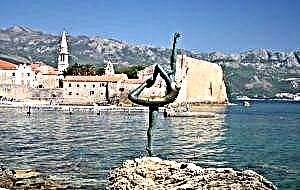 When buying real estate, there are no grounds for the emergence of the right to citizenship. However, the presence of real estate may become the basis for obtaining a temporary residence permit in order to use and dispose of the purchased property (Article 56 of the Law "On Foreigners").
When buying real estate, there are no grounds for the emergence of the right to citizenship. However, the presence of real estate may become the basis for obtaining a temporary residence permit in order to use and dispose of the purchased property (Article 56 of the Law "On Foreigners").
At the same time, real estate means not only apartments and other housing, but also commercial facilities, including catering facilities, tenement houses, warehouses and other commercial buildings and premises.
To obtain a residence permit on this basis, it is sufficient to provide proof of ownership of real estate. Citizenship will be acquired in the general naturalization procedure.
Based on international agreements
As another basis for obtaining citizenship of Art. 14 of the Law "On Citizenship" establishes the existence of international agreements concluded between Montenegro and other countries. Subject to reciprocity, such agreements may, inter alia, provide for the right of bipatrides to dual citizenship.
However, at the time of preparation of the publication, the republic had not yet concluded such agreements with any country in the world, therefore a citizen of the Russian Federation on this basis will not be able to obtain citizenship of Montenegro.
Other grounds
The Citizenship Law also provides for other grounds on which an individual may be granted. So, the right to a passport also have:
- Montenegrin emigrants (Montenegrins who lived in the republic and left for another country) and their family members, including close relatives in a direct line up to the third degree of kinship, if they now legally reside in Montenegro for at least two years, have reached 18 years of age, have housing and income, have no convictions, debts and do not threaten the security of the republic (Article 10 of the Law “On Citizenship”);
- foreigners whose naturalization has a special economic, cultural, sports or other significance for the state, without observing the general conditions of naturalization (Article 12 of the Law);
- foreigners who have received refugee status, if they comply with all the conditions of naturalization, except for the availability of housing and income, as well as knowledge of the Montenegrin language (Art. 13 of the Law);
- stateless persons, if they have reached the age of majority, have lived in Montenegro for 10 years, have no convictions and debts, and also do not pose a threat to the state (Article 14 of the Law).
- citizens of the former Yugoslavia, if on 03.06.2006 they had a residence permit on the territory of the ChG and did not receive another citizenship, have housing and income, were not convicted, do not threaten security and do not have tax debts (Article 41 of the Law).
The procedure for obtaining citizenship of PP
If there are sufficient grounds and the specified requirements are met, a candidate for Montenegrin must submit an application for admission to citizenship and a package of documents to the competent authority (Article 27 of the Law). It is a regional division of the Ministry of Internal Affairs in Montenegro or a diplomatic or consular office abroad.
Along with the application, the applicant for citizenship must submit:
- birth certificate;
- a certificate of citizenship obtained in the municipality of the place of residence;
- marriage certificate (if any);
- certificate of loss of foreign citizenship;
- a certificate from the migration authorities at the place of residence, confirming the duration of residence in the country;
- proof of housing availability (sale and purchase agreement, lease, an extract from the real estate register, and so on);
- certificate from the place of work, certificate of income, certificate of pension and other proof of income;
- a certificate of no criminal record;
- certificate of proficiency in the Montenegrin language;
- a certificate from the tax office about the absence of debts;
- copy of your passport.
Depending on the reasons for obtaining a passport, you may also need:
- certificate of a Montenegrin emigrant;
- marriage certificate with a citizen of Montenegro;
- consent of parents and a child over 14 years old;
- refugee certificate;
- certificate of registration at the place of residence and so on.
Previously, if it is necessary under the conditions of obtaining citizenship, the candidate must pass a test of knowledge of the Montenegrin language at the accredited organization Ispitni centar CG, located at Ispitnog centra Podgorica, Vaka Đurovića bb, tel. 020-665-590. The cost of the exam conducted by the committee is 55 euros. The exam is held by appointment.
When submitting documents, a state fee of 100 euros is paid. After submission of documents, they are considered within 12 months from the date of initiation of the case.
If the request is incomplete or all the necessary evidence has not been provided with the request, or if the proceedings cannot be resumed or terminated without action by the applicant, the ministry will notify the applicant in writing of the information that he must provide within three / six months. Ignoring such a message is regarded as a refusal to further proceedings.
The candidate is notified of the result of consideration of the application in writing by mail. If the result is positive, he takes the oath of a citizen in a solemn atmosphere, after which he can receive a passport.
Residence
 One of the main conditions for obtaining citizenship is a long-term legal residence in Montenegro. Initially, such a basis is a residence permit in Montenegro. It can be obtained by a person who has arrived in the republic on the basis of a visa for the following purposes (Article 38 of the Law "On Foreigners"):
One of the main conditions for obtaining citizenship is a long-term legal residence in Montenegro. Initially, such a basis is a residence permit in Montenegro. It can be obtained by a person who has arrived in the republic on the basis of a visa for the following purposes (Article 38 of the Law "On Foreigners"):
- family reunification;
- getting education,
- participation in exchange programs;
- professional retraining;
- treatment;
- conducting research activities;
- obtaining refugee status;
- conducting divine services;
- employment and other purposes.
A residence permit gives the right to stay in the country for more than 90 days. The specific period of the issued residence permit will depend on the grounds of residence.
For example, for employment, a residence permit is issued for the period specified in the work permit. If the grounds for residence are preserved, the residence permit can be extended.
A residence permit is issued on condition that the foreigner fulfills the requirements of Art. 43 of the Law "On Foreigners". A state fee is paid for issuing a document - 5 euros.
Permanent residence
Persons who have legally resided in the country for 5 years on the basis of a residence permit or refugee status have the right to permanent residence in Montenegro (Article 86 of the Law). In exceptional cases, the compulsory residence period is not required.
For persons who have received a residence permit for education, professional retraining, the period of residence for obtaining permanent residence is reduced by half.
For obtaining a permanent residence permit, the same requirements are imposed as for obtaining a residence permit. A foreigner must:
- have a livelihood and housing;
- have medical insurance;
- submit a passport, the validity of which is at least 3 months longer than the requested permanent residence;
- not to have entry bans, not to be sentenced in the country to imprisonment for a period exceeding six months;
- justify the need for accommodation.
Permanent residence does not require renewal and is issued for permanent use. The administrative fee for issuing it is 25 euros.
Refusal to issue citizenship
The reason for the rejection of an application for the issuance of citizenship may be:
- failure to comply with the requirements for granting citizenship;
- identification of the fictitious marriage, on the basis of which the status is requested;
- submission of forged, forged, fictitious or containing false information documents;
- non-withdrawal of the candidate from the previous citizenship;
- identification of outstanding convictions;
- service in foreign military forces;
- disappearance of grounds for granting refugee status.
The decision to refuse must be communicated to the candidate in writing with the obligatory argumentation of the stated position, explanations and instructions for appealing this decision.In this case, the candidate has the right to open an administrative dispute if he considers the decision of the Ministry of Internal Affairs to be illegal (Article 29 of the Law “On Citizenship”).
Bipatrism in Montenegro
 Dual citizenship in Montenegro is not allowed by law. The only case when it is permissible is the existence of relevant international agreements, none of which has been signed at the moment.
Dual citizenship in Montenegro is not allowed by law. The only case when it is permissible is the existence of relevant international agreements, none of which has been signed at the moment.
The situation is similar with the second citizenship. As a general rule, foreigners applying for a Montenegrin passport must renounce their existing citizenship. But in some cases they can keep it, for example, if they are Montenegrin immigrants and members of their families, spouses of Montenegrins or persons who are granted citizenship due to state interests.
If a citizen of Montenegro in the future voluntarily acquires the citizenship of a foreign state, this is the basis for the loss of the passport of the republic (paragraph 1 of article 24 of the Law). That is, as a general rule, neither a second nor dual citizenship is allowed in the republic, but in some cases it is still permissible.
Conclusion
Montenegrin citizenship can be obtained by foreigners if they have lived in the country for 10 years, have housing and a steady income, do not have serious convictions, debts, do not pose a threat to the state and have renounced their previous indigenous.
For some categories of foreigners, preferential conditions are provided, for example, for persons acquiring citizenship by marriage, as a result of investment, or as Montenegrin emigrants.
The fee charged upon application is 100 euros. The procedure for obtaining citizenship takes 12 months, during which the Ministry of Internal Affairs will consider the applicant's application and make a decision. If it is negative, the candidate has the right to challenge it administratively.



